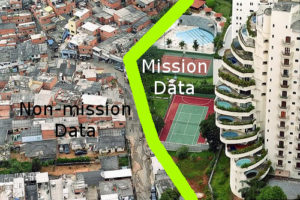It was rightly brought to my attention that’s it’s incorrect for this blog to assert that “ALL” government knowledge, information, and data (KI&D) is in need of knowledge management discipline.
Apologies for not clarifying.
General government knowledge, information, and data (better named “Government Business KI&D”) is the thematic subject of this blog’s articles.
Government business KI&D is the knowledge, information, and data developed for any purpose other than an organization’s primary “mission.”
In addition to an organization’s public information, such as, seniors’ correspondence, official statements, press releases, legal proceedings, procurements, etc., the knowledge and information produced in support of, surrounding, and resulting from a government agency’s primary mission ARE its official records and as official records are bound by the National Archives and Records Administration (NARA) – Records Management regulations.
One expects that federal agencies, with NARA guidance, are responsible stewards of their agency’s official knowledge, information, and records and by extension the interests of the United States.
As for how much care the government shows the non-mission-related KI&D (the “Business” information) generated by agencies…not so much![perfectpullquote align=”right” cite=”” link=”” color=”” class=”” size=””] One expects that federal agencies, with NARA guidance, are responsible stewards of their agency’s official knowledge, information, and records and by extension the interests of United States.
As for how much care the government shows the non-mission-related KI&D (the “Business” information) generated by agencies…not so much! [/perfectpullquote]
Government business KI&D is the “daily grind” information that is generated for internal agency organizational management and by internal agency organizations and employees:
- Daily reports;
- Email attachments;
- Notes, guidance, training, analysis, instructions, manuals, diagrams, requirements;
- Updates and edits to records in content management systems;
- …the list goes on.
This information is a mess. It’s stored everywhere in no particular order by everyone.
So, why does anyone care about the daily business information generated by government employees?
The internal government response to federal waste is analysis of efficiencies and inefficiencies within agencies. Refined efficiencies are not found on the mission-side of agencies. Agencies, DoD in particular, spend large amounts of their budget to be state-of-the-art in pursuit of their mission, regardless of the cost to get and remain there.
Efficiencies are sought on the non-mission, “Business” side of government; and, because employee payroll and pension, along with services contracting, are a massive draw on federal funds, questions are asked, like:
- How can agencies reduce the number of federal contractors on which they rely?
- How can agencies reduce the size of their federal employee workforce?
- What tasks within agencies can be combined and automated to eliminate positions?
The employee and contractor certainly are not asking these questions. The agency facing budget cuts has no option but to ask them.
The reason “anyone care[s] about the daily business information generated by government employees” is because the ability to measure – completely online – government employee effort in terms of time on projects, hours online, digital products created, and general overall employee contribution is simply awaiting the vision of a government leader to agree to make it happen.
Once the capability to measure waste by monitoring both successes and failures electronically is realized, the metrics used in measuring will be directly dependent on organizational “business”KI&D which has undergone the grooming of knowledge management.
[perfectpullquote align=”full” cite=”” link=”” color=”” class=”” size=””]Previous articles have asserted that an existing solution for the management of non-mission government business knowledge and information is the application of the NARA – Records Management standards – the mandates set forth by the National Archives and followed by government agencies to ensure that organizational official mission data – official records – conform to universally usable standards.[/perfectpullquote]

